Rothschild Safari Travel Designers are always answering questions.
Here is a collection of the ones we hear the most:
Frequently asked safari questions.
Is it safe to go on safari?
Africa remains a wild and unpredictable continent. It isn’t a good idea to travel on safari if your trip has not been planned well.
An experienced outfitter will always design your safari to ensure safety and comfort at every step and transfer along the way. This consideration might range from advising travelers to speak to a trusted concierge before setting out from their hotel in Johannesburg to requesting the best and most knowledgeable guides in the wild.
A well-planned, luxury African safari should always be safe to enjoy.
 © Casey Allen – unsplash.com
© Casey Allen – unsplash.com
Why choose South Africa for a safari?
This country offers both culture and wildlife experiences (including malaria-free* Big 5 reserves). The Cape Winelands and Cape Town is an incredible food and wine destination and lesser-known areas such as the Bushman’s Kloof Wilderness Reserve and Grootbos Private Nature Reserve entice those in the know to wander from the beaten track and experience intriguing rock art, wildflowers and the Marine Big Five. You can also spend time with elephant researchers and see the Kalahari desert here.
The Kruger National Park and the private lodges and conservancies bordering on it still lay claim to being Africa’s blue-chip wildlife destination for any luxury safari.
South Africa is also a great choice if you are looking for a relatively inexpensive but well-rounded experience.
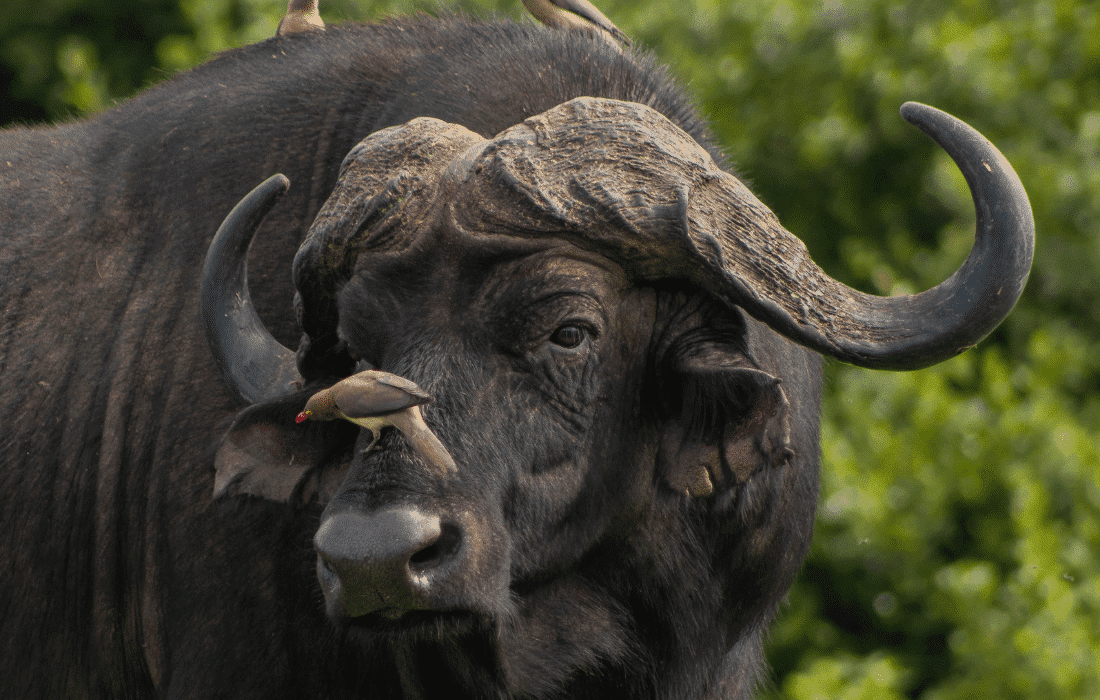 Why choose Botswana for a safari?
Why choose Botswana for a safari?
Botswana is a high-end destination for the very best luxury safari with the option of staying in the Okavango Delta, visiting the semi-arid Kalahari Desert or Chobe National Park.
The emphasis is on active itineraries and properties that blend into their surroundings. It is remote, incredibly beautiful, and it promises prolific animal sightings. In the Western Kalahari, you will also be able to glimpse how we all lived 10,000 years ago.
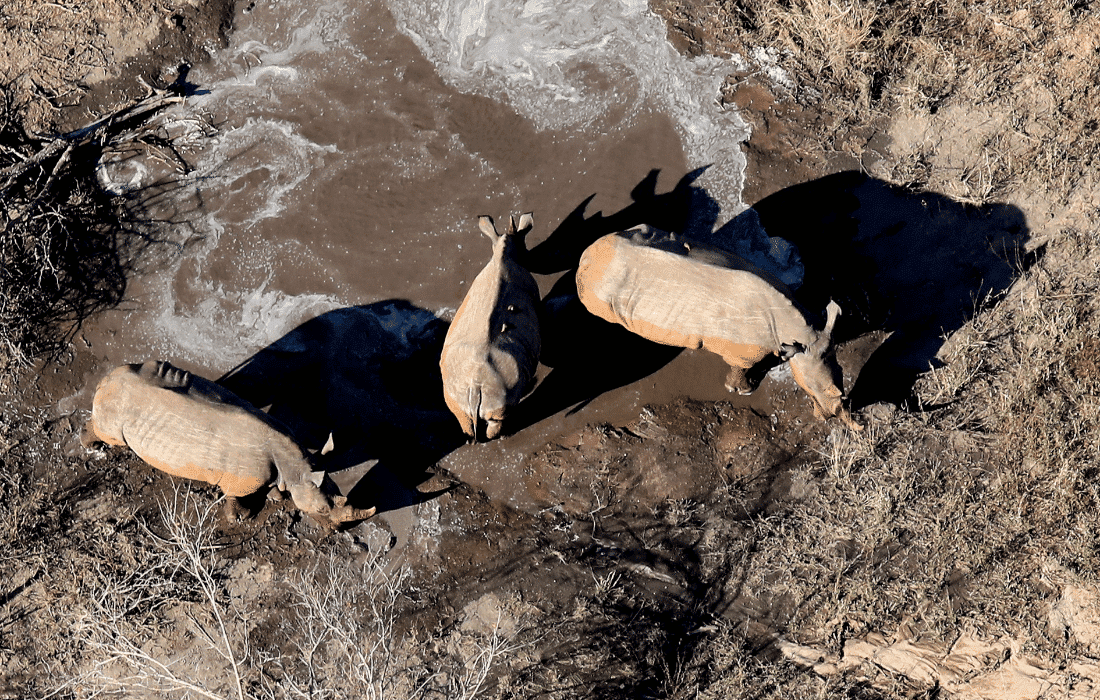 © Wynand Uys – unsplash.com
© Wynand Uys – unsplash.com
Why choose Namibia for a safari?
Africa’s largest reserve, the Namib-Naukluft National Park, can be found in Namibia. The country’s Etosha National Park is famous for the plentiful plains game and the fossilized trees, and desert elephants of Damaraland are all otherworldly and dramatic.
Whether you travel by land, air or hot air balloon during your luxury safari holiday, you can spot black rhino, desert elephants, and cheetahs in Damaraland and Etosha National Park.
The country has endless space, and the challenge of navigating the great distances have many travelers opting for high-end, privately guided fly-in safaris.
 © Jordi Fernandez – unsplash.com
© Jordi Fernandez – unsplash.com
Why choose Zambia for a safari?
Famous for walking safaris and canoe trips serviced by stylish (but affordable) bush lodges and river camps. Zambia brings the rivers of the South Luangwa National Park, all the game of the Lower Zambezi National Park and the incredible Victoria Falls to the itinerary.
Both luxury African safaris and old-school rustic are catered for. As the home of the walking safari, there is no better place to take in a sense heightening stroll in the footsteps of the elephants. The adventurous can take a camp-to-camp river voyage by canoe from the Lower Zambezi all the way to Victoria Falls.
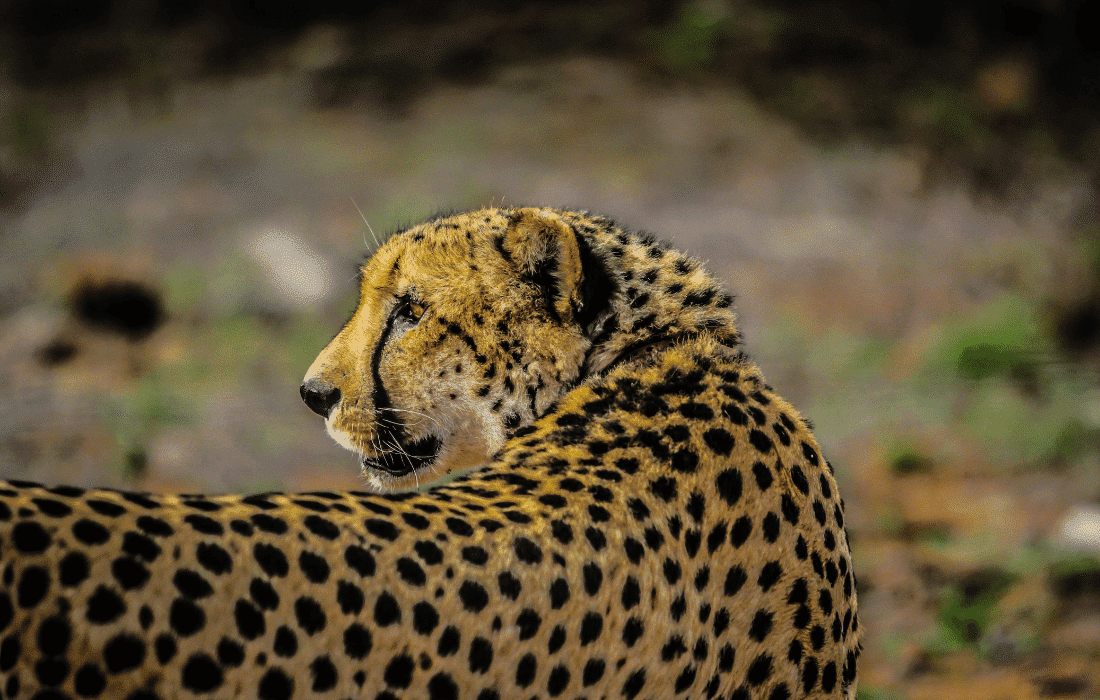 © Casey Allen – unsplash.com
© Casey Allen – unsplash.com
Why choose Tanzania for a safari?
If the Great Migration, Kilimanjaro, Ngorongoro Crater, and Zanzibar are not enough to take your breath away, there are plenty of other parts of this country to discover on a luxury safari.
Visit remote Lake Eyasi, the jungle-covered Mahale chimp habitat or take a walking safari in the untamed Selous Reserve where you can gaze at thousands of wildebeest by day and billions of stars from your riverside tent at night. Tarangire National Park is home to the highest density of elephants in Tanzania.
Tanzania has more mobile (luxury) tented accommodation. An introductory itinerary will typically include Ngorongoro and Serengeti while more seasoned safari travelers will enjoy the day-long game drives of Ruaha National Park and the Selous. There is also the white beaches and cultural interactions of Lake Tanganyika.
(East Africa will give you more of the National Geographic experience… but prepare for a lot of driving safaris.)
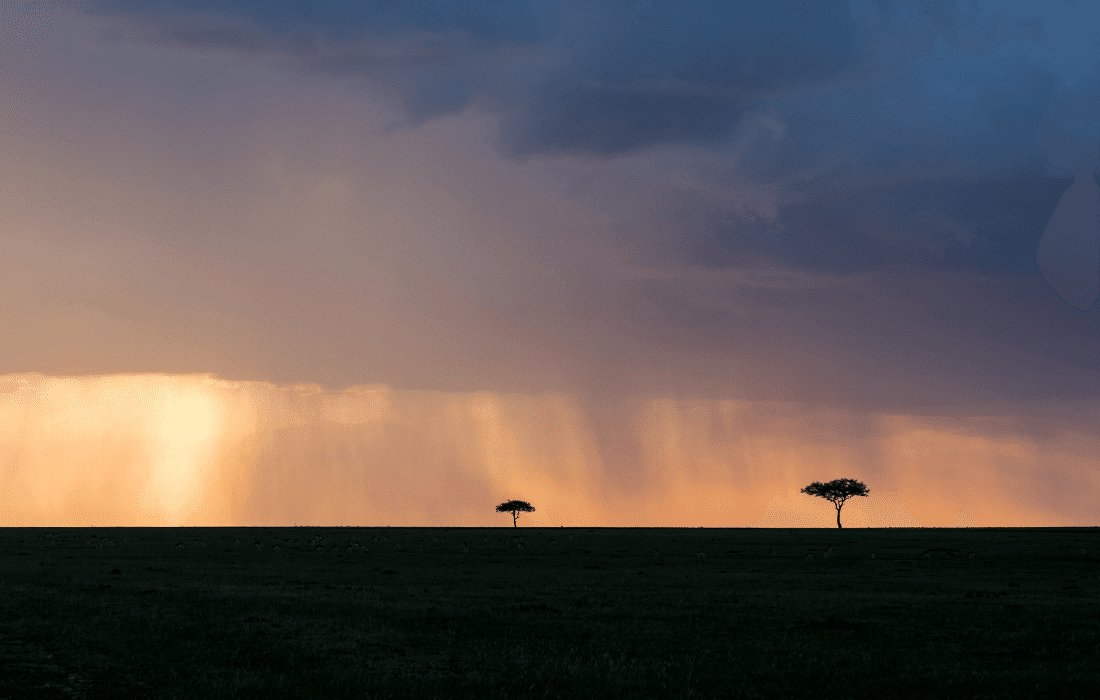 © Javi Lorbada – unsplash.com
© Javi Lorbada – unsplash.com
Why choose Kenya for your safari?
Nairobi was the original starting block of the classic safari. Kenya remains the most romantic of all the safari destinations with the Masai Mara National Reserve and the private game reserves of the Laikipia region featuring a breed of new lodges and lodge owners.
Meet the Samburu and go camping with wild camels in-between game drives in Laikipia and the Northern Frontier District.
Kenya will bring you as close to Out of Africa as you can get and is very family-friendly.
(East Africa will give you more of the National Geographic experience… but prepare for a lot of driving safaris.)
 © Amar Yashlaha – unsplash.com
© Amar Yashlaha – unsplash.com
Why choose Rwanda for your safari?
If you would like to experience luxury gorilla trekking and you are short on time, then Rwanda is a great choice. This is home to Dian Fossey’s Virunga Mountains, and your ‘Gorilla’s in the Mist’ trekking permits are pricy, but the country also has three national parks and many other worthy attractions.
Apart from the gorillas you can also spend time with chimpanzees and golden monkeys here… or take the usual safari.
 © Eric MacDonell – unsplash.com
© Eric MacDonell – unsplash.com
Why choose Uganda for your safari?
Uganda offers gorilla habituation permits, and the Ugandan permits are the most affordable. Trekking to see gorillas in Uganda can be more challenging, from the transfer to Queen Elizabeth National Park to the actual walk to see the gorillas.
Uganda is a great standalone, budget destination where you can take in the gorillas and the Big Five on a ten-day safari.
 © Geran de Klerk – unsplash.com
© Geran de Klerk – unsplash.com
Which countries are lesser-known safari destinations?
Malawi
Elephants and black rhinos have been reintroduced, and the gin-clear waters of Lake Malawi remains a star attraction.
Mozambique
From the Gorongosa National Park to the beautiful coast, Mozambique is slowly returning to its former glory.
Republic of Congo
Nothing like the war-torn DRC, in the Republic of Congo rare forest elephants and the highest density of Africa’s western lowland gorillas dwell close to the eco camps of Odzala-Kokoua.
Zimbabwe
Putting political strife behind it, Zimbabwe once again has investors and independent operators reigniting the country’s safari industry.
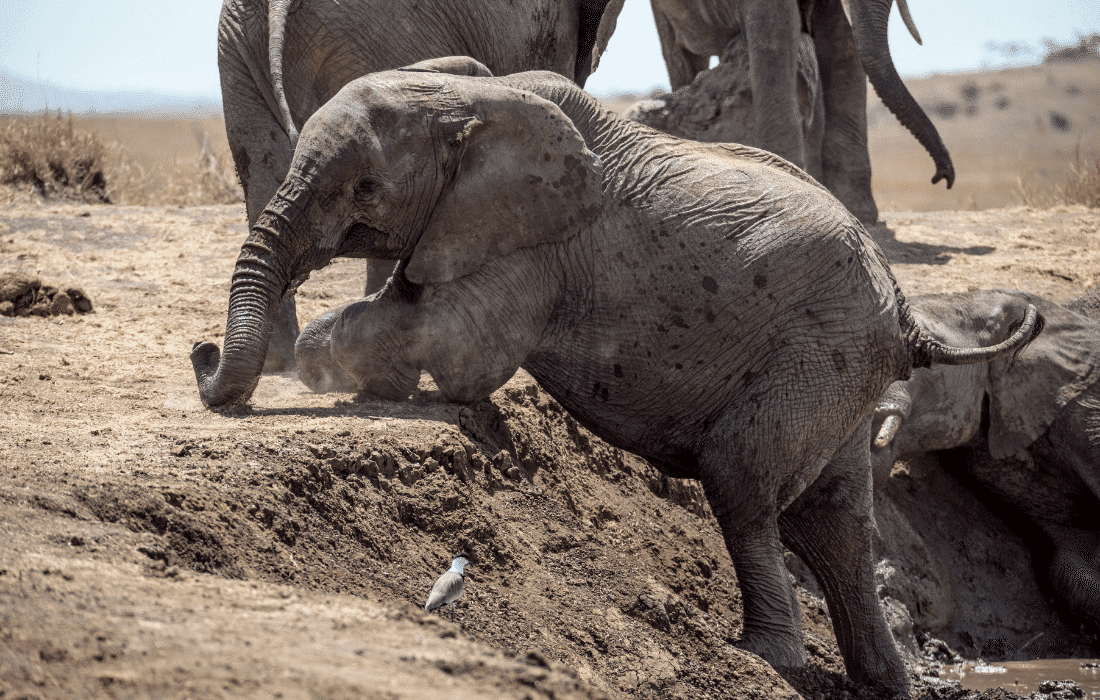 © David Clode – unsplash.com
© David Clode – unsplash.com
Why should you go on safari?
There is no better way of disconnecting from the constant pressures of our busy lives than through reconnecting with nature when you embark on a luxury safari holiday. This is your opportunity to see unique creatures against spectacular backdrops… and contrary to popular belief a safari should be as financially accessible as any other international travel plan.
 © Robson Hatsukami Morgan – unsplash.com
© Robson Hatsukami Morgan – unsplash.com
How to choose your destination for a safari?
1. Start with your budget
High park fees make Kenya and Tanzania more expensive.
Botswana and Zambia add costs due to the accessibility of the very remote areas.
South Africa and Namibia charge game reserve fees in local currencies and are more accessible.
Zimbabwe can also work well for anyone on a budget as the costs of accommodation, food and transport are low.
Remember to factor in visas and vaccinations as they can add to your overall costs.
2. Consider using a local operator
Local tour guides, accommodation, and experiences may offer better value than larger international companies. Use smaller Travel Outfitters and ask them about the little places no one knows about that might serve your needs just perfectly.
3. Consider a group tour
This is certainly not for everyone, and it is difficult to tailor a group safari anywhere close to the exclusive experience you can have on a personal safari, but some people love the company, don’t mind the compromise and prefer the lower cost.
4. Choose to Self-Drive
If time is not limited, you are a confident explorer, and you enjoy tailoring your itinerary personally as you go, you might want to take a self-drive safari. This choice might limit your destination options to countries with safe roads, and you might also regret not having an expert local guide.
5. Embrace the low season
Low is often synonymous with wet in Africa. This might be a non-starter for some, but those in the know may love the lush scenery and the many herbivore babies that can often be spotted in the rainy season. Some areas have to close during the rainy season due to roads flooding.
6. Stay put
When you choose one park to enjoy your entire safari in you will cut down on domestic flights and expensive transfers. You might choose the Serengeti or the Masai Mara for the Great Migration or see the Big Five in Zimbabwe’s Hwange or South Africa’s Kruger Park.
7. Mix up the splurge and the save
This is our favorite strategy for making a safari more affordable. When you have an excellent knowledge of an area, you will know where to splurge (for experiences and properties that are once-in-a-lifetime opportunities) and where to save (more rustic accommodation where it’s all about the game drive, for instance.)
 © Harshil Gudka – unsplash.com
© Harshil Gudka – unsplash.com
How does a Travel Designer plan a safari?
A great Travel Designer will only sell what they know. They spend a lot of time traveling to the destinations they specialize in to ensure that they are an authority on the properties and the adventures on offer. Then they spend a lot of time speaking with a prospective guest and finding out what they can afford, what they dream of experiencing and ensure that the entire plan is not only safe and practical but that it suits every guest down to their likes and dislikes.
 © Sergey Pesterev – unsplash.com
© Sergey Pesterev – unsplash.com
Why should I consider using a Travel Designer to plan my safari?
We often liken this to cutting your own hair. It is not an impossibility, but the results will be experimental at best and a disaster at worst. African travel can be dauntingly complicated, and a Travel Designer will put a plan together for free. They also get the very best rates for every part of the journey, and due to having long working relationships with the operators of properties and experiences, they will ensure that you are treated like royalty, will always pick the best room, and may even be able to organize upgrades, etc. A Travel Designer’s job is to plan the best luxury safari… and they do this at no cost to you.
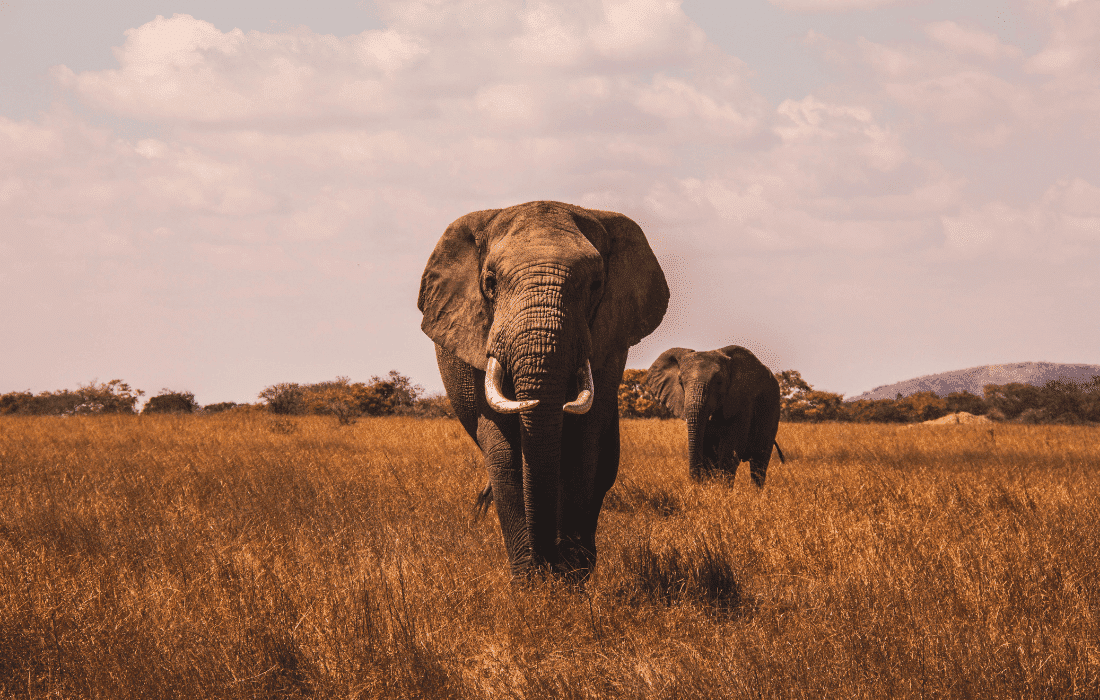 © AJ Robbie – unsplash.com
© AJ Robbie – unsplash.com
How long should I go on safari for?
Africa is a big continent (You can fit the USA, all of Europe and China into it) and unless you have a lot of spare time on your hands you may be best off focusing on one country, and spending at least ten days with a maximum of three stops on your luxury safari.
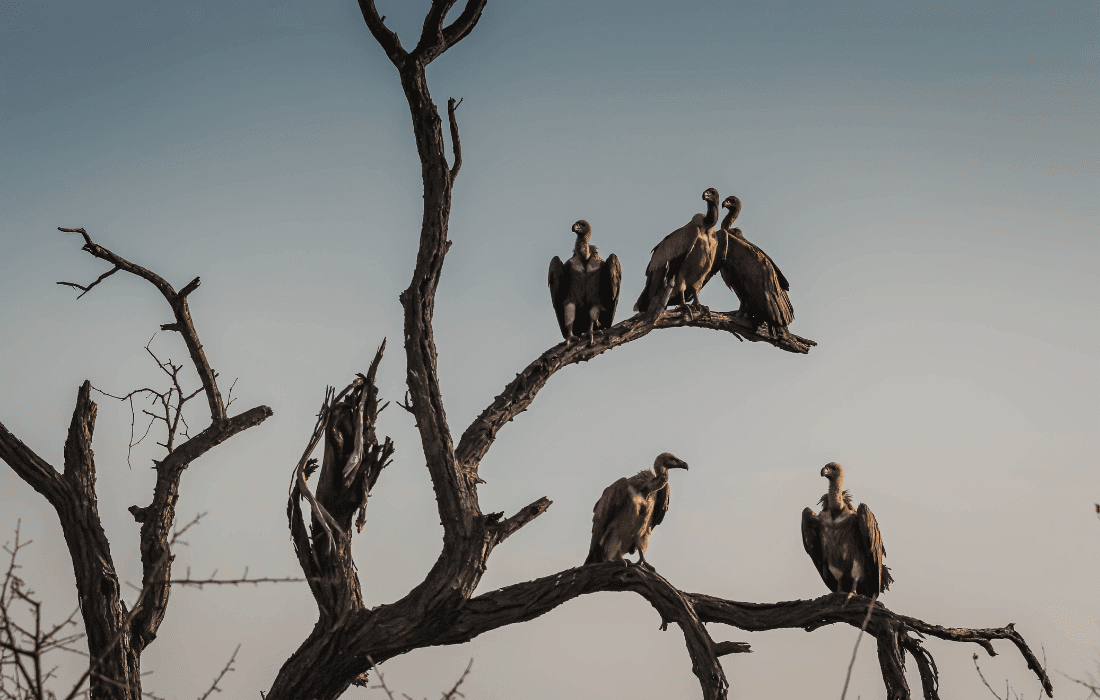 © Casey Allen – unsplash.com
© Casey Allen – unsplash.com
How serious is the malaria threat?*
Malaria is an incredibly severe and possibly life-threatening disease. It is also a very curable disease when it is spotted early and treated correctly. Many of our Travel Designers and staff have lived in and raised families in areas with a high level of malaria threat. In these communities, malaria remains a frequent occurrence and with quick detection and correct treatment a fairly routine affair. Even in the malaria-free areas of Africa, there is a very low risk of contracting malaria. Do note: having had malaria previously does not make you immune to contracting it again.
Discuss all your options with your doctor (including the side effects of taking prophylactics) and be diligent in following all recommendations, concentrate on preventing bites (wear mosquito repellent and long sleeve tops and long trousers especially at dusk and dawn and sleep under a treated mosquito net), and be vigilant about getting tested for malaria immediately if you experience flu-like symptoms. The greatest danger when you do contract malaria is not receiving treatment quickly.
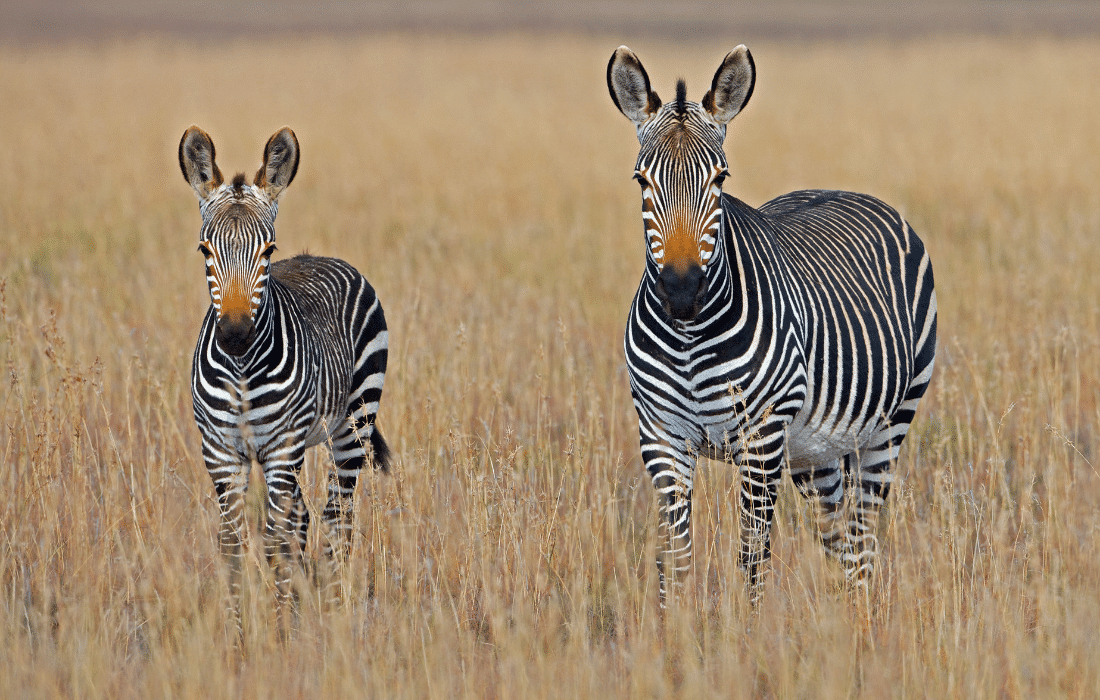 © George Brits – unsplash.com
© George Brits – unsplash.com
Should I bring my young children on safari?
This can depend on a particular child, but we find that almost all children love going on safari. Children over the age of eight are accepted in many kid-friendly properties and programs for children can be found far and wide.
Excellent child-friendly guides, keeping transfer days and times to a minimum and working plenty of downtime and great experiences into your safari will make any family safari incredibly unique.
Just be warned: traveling to Africa often influence children to see the world from a new perspective, and they may have more understanding of the world and find greater joy in everyday life once they return from their safari.
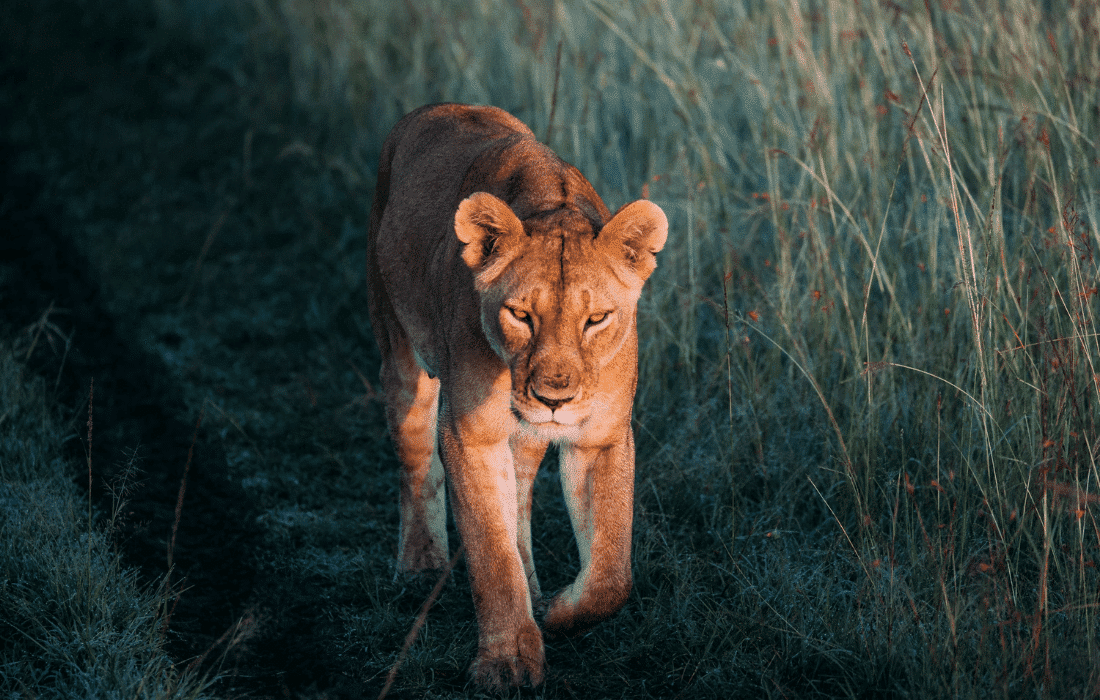 © Jason Charles Hill – unsplah.com
© Jason Charles Hill – unsplah.com
Is it better to travel in a group or take a private safari?
The answer can differ from one person to the next. Some people simply adore the camaraderie of group travel, and there are also groups traveling for specific interests or passions (like birding or photography) who might enjoy the shared knowledge and experience. Others want the flexibility and privacy that comes with an exclusive safari. It is worth noting that a luxury safari will often not be much cheaper when you join a group. If you do decide to travel by group, choose one with less than a dozen guests and a high guide-to-guest ration.
When you aren’t traveling in a group, but you have also not booked a private luxury safari then you may be paired with other guests for activities during your stay.
 © Lisa H – unsplash.com
© Lisa H – unsplash.com
When is the best time to see the Great Migration?
The Great Migration is neverending. It runs in a clockwise direction between Tanzania’s Serengeti (where they spend around nine months) through Kenya’s Mara (where they are found for the other three months) before returning to the Serengeti.
There are never any guarantees when it comes to wildlife. The migration depends entirely on the rains and the whims of the animals! Experienced Travel Designers will know where the best location is to spy the migration depending on the time of year that you want to travel. They can also tell you when the best time is to visit the most suitable location if you have specific requests and needs.
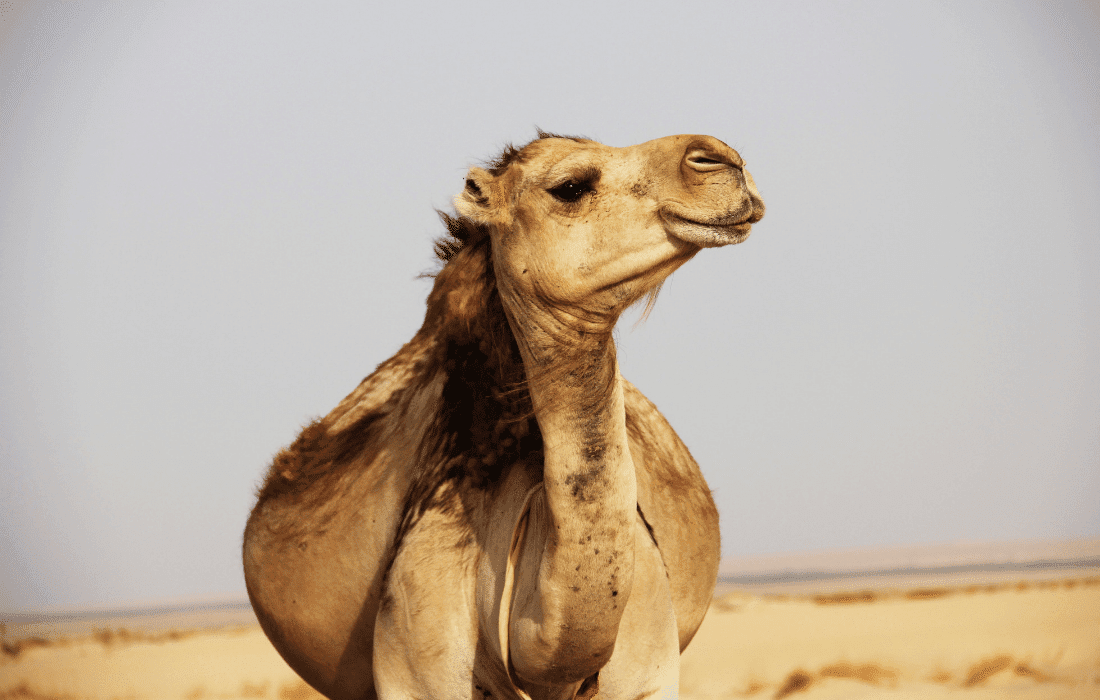 © Daniela Castro – unsplash.com
© Daniela Castro – unsplash.com
Can I combine my safari with a beach retreat?
Yes – depending on the seasons, the weather and the destination.
So if you are in Kenya, you can visit Lamu or the Seychelles or Mauritius.
From Tanzania, you can dive from Mafia Island or stay off the coast of Zanzibar.
South Africa boasts a varied selection of gorgeous beaches, but it is also a gateway to the islands off the coast of Mozambique or a holiday in Mauritius.
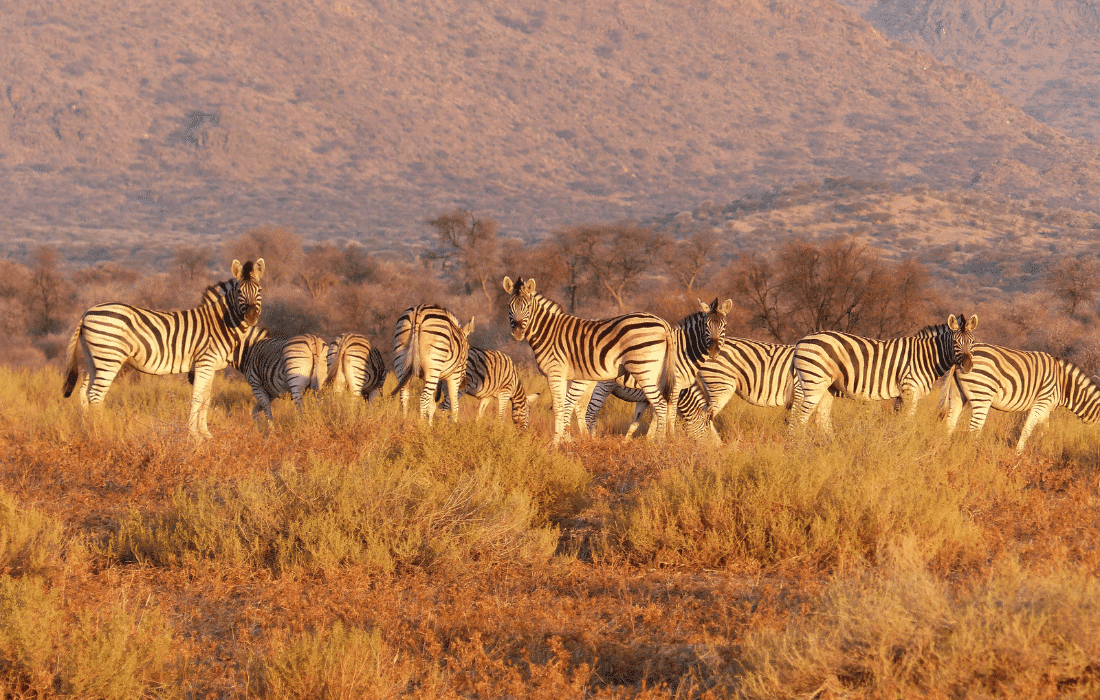 © Johann S. – unsplash.com
© Johann S. – unsplash.com
What should I pack for my safari?
Your destination and the activities you have planned may require specific items, but general advice for safari packing is as follows.
1. The luggage allowance will be small if you have to take a light aircraft for any transfer. You must also pack your clothes in a soft-sided bag for all light aircraft travel.
2. Most lodges provide daily laundry, so you don’t need to bring clothes for every day.
3. Think function before style. Khaki is a favorite in the bush as it does not show dust easily. Have layers (it can get chilly at night) and ensure that you are protected against bugs, rain, and wind.


